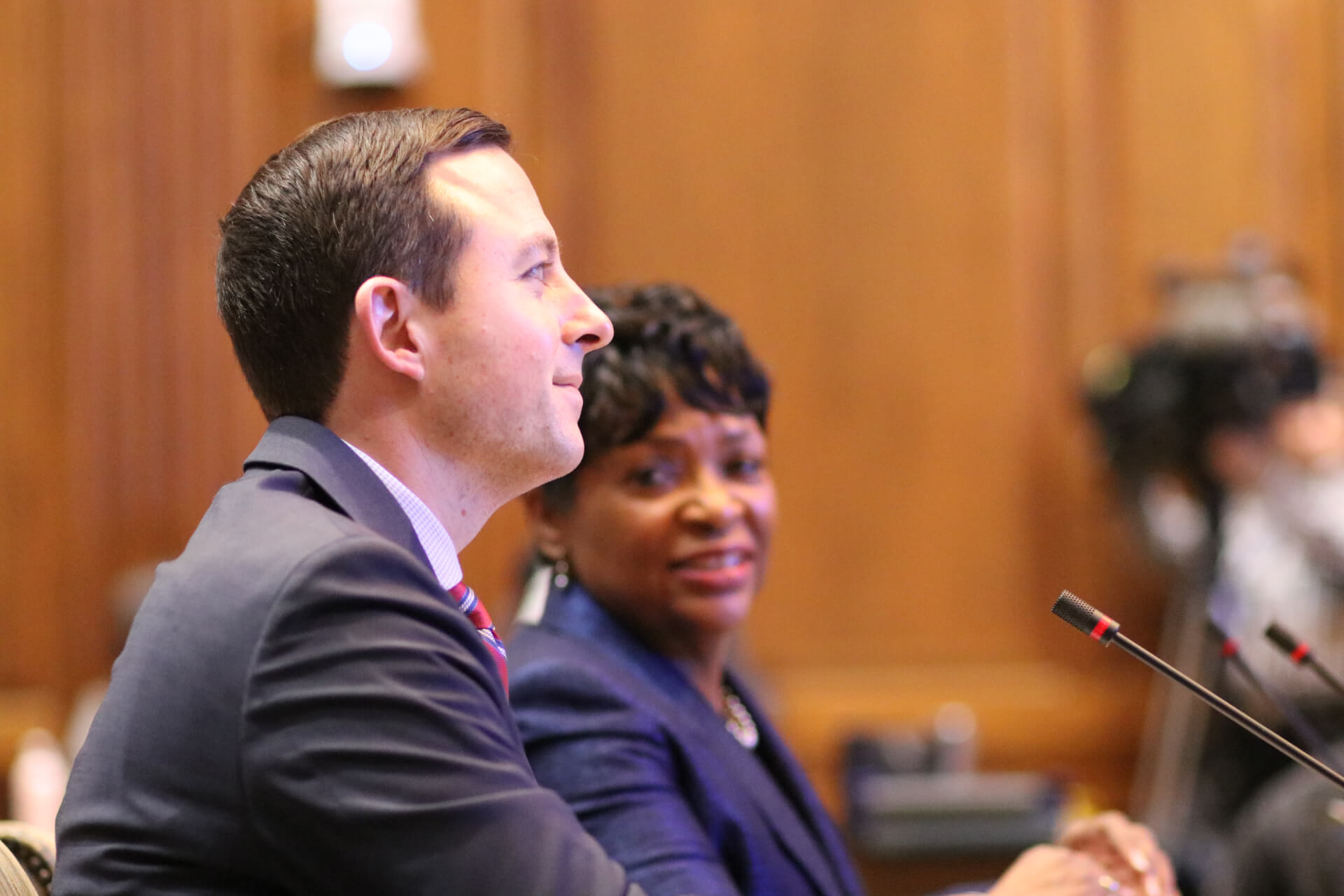Leigh Williams: General Assembly’s New Leaders Navigated Uncharted Territory

With Maryland’s stay-at-home order recently put into effect as a way to flatten the COVID-19 curve, it is unlikely the Maryland General Assembly will get back to business any time soon.
The General Assembly has planned to return to Annapolis towards the end of May to complete its 2020 legislative work. However, the growing severity of this public health crisis coupled with the need to strengthen the state’s response may extend the legislature’s adjournment.
This is as good a time as any to publicly applaud the new Maryland Senate President Bill Ferguson, and new House Speaker Adrienne Jones. Fulfilling their leadership roles, both presiding officers confidently devised, announced and implemented plans to shorten the legislative session, unheard of since the onset of the Civil War.

Leigh Williams
Watching the website, we saw them remain resilient as the workload increased exponentially, yet they were able to inspire and encourage the members of their respective chambers to move hundreds of bills in a few short days. Their expert ability to conduct floor proceedings while humbly listening to debates was clear to onlookers. In the waning hours before Sine Die, their commitment to address legislative priorities led to the passage of historic pieces of legislation.
Balancing the State Budget — Senate Bill 1028
Unlike most states in the nation Maryland’s executive branch has extraordinary budgeting power precluding the legislature from increasing or adding a line item to the governor’s proposed budget. For over 25 years both political parties have repeatedly sought to pass legislation allowing the legislature to collaborate with the governor on devising and passing the state’s budget within spending limitations.
Remaining steady at the helm through the landslide of committee hearings and floor proceedings, the new presiding officers confidently and successfully ushered a bill through both chambers giving voters in November 2020, by constitutional amendment, the opportunity to restore the balance of power in the budgeting process.
Funding HBCUs — House Bill 1260
The General Assembly also passed landmark legislation requiring the governor to distribute an additional $57.7 million each fiscal year beginning 2023 through 2031 to historically black colleges and universities (HBCUs) if the current lawsuit over equal access to higher education is finally settled by the end of the year.
As the lead bill sponsor, Speaker Jones took charge to resolve the never-ending settlement negotiations that started in 2007 following a judge’s ruling in the case. Appearing before both House and Senate committees assigned to hear the bill, the speaker personally educated members about the underlying legal case and the failed efforts towards mediation. She explained that while serving as a member of the Appropriations Committee in a leadership capacity, she was part of a mediation team formed to settle the dispute.
The speaker’s advocacy to provide resources to HBCUs by explaining the issue and identifying herself as once being a committee member working to resolve the decades-old dispute, motivated her colleagues in the House and Senate to vote to create the fund.
Congratulations to Senate President Ferguson and House Speaker Jones, who in their inaugural year presiding over their respective chambers, demonstrated exceptional leadership during this unconventional legislative session.
— LEIGH WILLIAMS
The writer, an attorney and one-time lobbyist, is a former deputy secretary of energy at the Maryland Department of General Services and a former head of the Maryland Energy Administration.




 Creative Commons Attribution
Creative Commons Attribution